Understanding Advanced Renal Cell Carcinoma
Before diving into the benefits of support groups for advanced renal cell carcinoma patients, it's important to first understand what this cancer is and how it affects those diagnosed. Advanced renal cell carcinoma, or RCC, is a type of kidney cancer that has spread beyond the kidneys to other parts of the body. This stage of cancer can be challenging to treat, and patients often face a range of physical, emotional, and mental health issues as a result.
Living with advanced RCC can be overwhelming, and it's crucial for patients to have access to resources and support that can help them cope with their diagnosis and treatment. One of the most effective ways to find this support is through participation in support groups specifically designed for individuals living with advanced renal cell carcinoma.
The Importance of Emotional Support
When a person is diagnosed with advanced renal cell carcinoma, they may experience a range of emotions, such as fear, anxiety, sadness, and anger. It's essential for patients to have an outlet to express these emotions and receive validation and understanding from others who have gone through similar experiences. Support groups provide a safe space for individuals to share their feelings and learn coping strategies from their peers.
Emotional support is crucial for maintaining mental health and well-being during cancer treatment. By participating in support groups, patients can build connections with others who truly understand their experiences and can offer empathy, encouragement, and hope.
Managing Physical Symptoms and Side Effects
Advanced renal cell carcinoma and its treatments can cause a variety of physical symptoms and side effects. Support groups often include discussions about how to manage these issues effectively. Patients can share tips and tricks for dealing with side effects such as fatigue, pain, nausea, and changes in appetite. Learning from others who have found success in managing their symptoms can be incredibly helpful for patients who are struggling.
Additionally, support group members may be able to provide recommendations for helpful resources such as local physical therapists, nutritionists, and other healthcare providers who can assist in addressing these challenges.
Access to Information and Education
Support groups for advanced renal cell carcinoma patients often feature educational components, such as guest speakers and informational materials. These resources can help patients stay up-to-date on the latest advancements in treatment, research, and clinical trials. Having access to accurate and timely information can empower patients to make informed decisions about their care and advocate for themselves with their healthcare team.
Furthermore, support groups often provide guidance on practical matters such as navigating insurance, managing finances, and accessing community resources. This type of information can be invaluable for patients and their families as they navigate the complexities of living with advanced RCC.
Building a Network of Support
One of the most significant benefits of participating in a support group is the opportunity to build a network of individuals who understand the unique challenges associated with advanced renal cell carcinoma. This network can include fellow patients, caregivers, and even healthcare professionals who specialize in treating this type of cancer.
Having a strong support network can help patients feel less isolated and more connected to others who share their experiences. This sense of community can be a powerful source of strength and resilience during difficult times.
Caregiver Support
Caregivers of advanced renal cell carcinoma patients also face unique challenges and can benefit from participating in support groups. These groups provide a space for caregivers to share their experiences, learn from others, and receive emotional support. By attending a support group, caregivers can gain valuable insights into how to best care for their loved one while also ensuring their own well-being.
Many support groups also offer resources and guidance for caregivers on topics such as self-care, stress management, and navigating the healthcare system on behalf of their loved one.
Improving Communication with Healthcare Team
Participation in a support group can help patients feel more confident and knowledgeable when communicating with their healthcare team. Discussing experiences and learning from others can empower patients to ask important questions, seek out additional resources, and advocate for their needs. Improved communication with healthcare providers can lead to better overall care and outcomes for patients with advanced renal cell carcinoma.
Additionally, some support groups may have healthcare professionals as members or guest speakers, providing patients with direct access to expert advice and guidance.
Encouraging Adherence to Treatment Plans
Support from peers can be a motivating factor for patients to adhere to their prescribed treatment plans. Hearing the experiences of others who have successfully navigated treatment can provide inspiration and hope for patients facing their own journey. In addition, support group members can share strategies for overcoming barriers to treatment adherence, such as managing side effects or accessing financial assistance programs.
By encouraging adherence to treatment plans, support groups can play a crucial role in improving health outcomes for advanced renal cell carcinoma patients.
Finding Hope and Resilience
Perhaps the most important benefit of support groups for advanced renal cell carcinoma patients is the opportunity to find hope and resilience in the face of adversity. Connecting with others who have experienced similar challenges and triumphs can inspire patients to keep fighting and maintain a positive outlook.
By participating in a support group, patients can draw strength from their peers and find the motivation to persevere through their cancer journey, improving their overall quality of life.

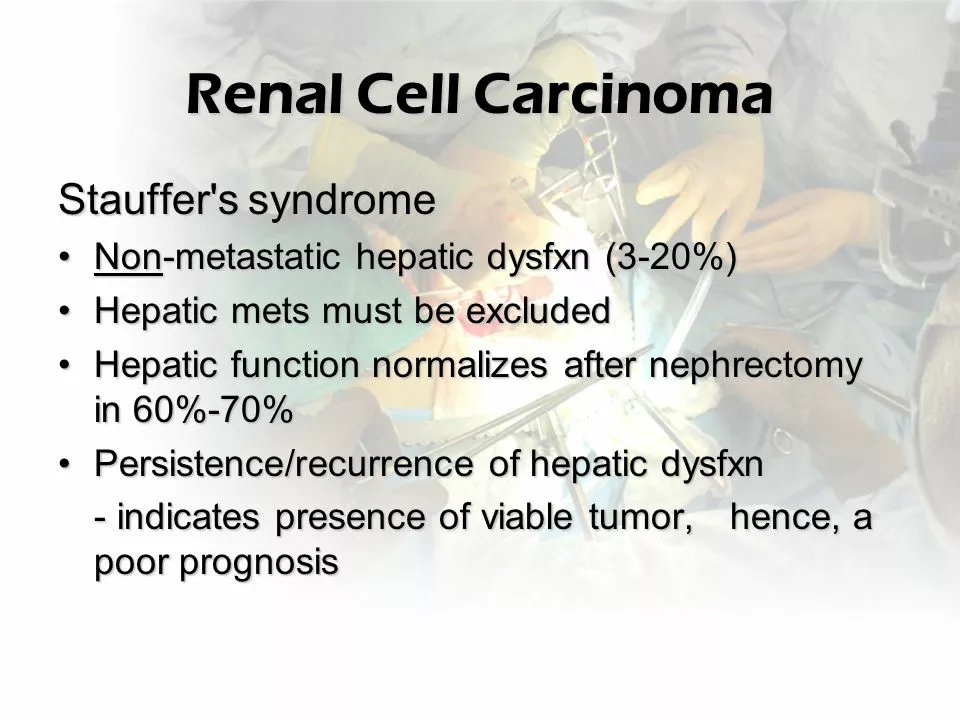

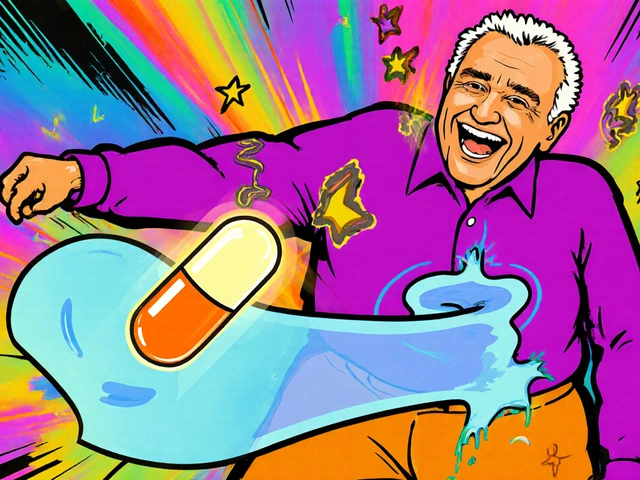
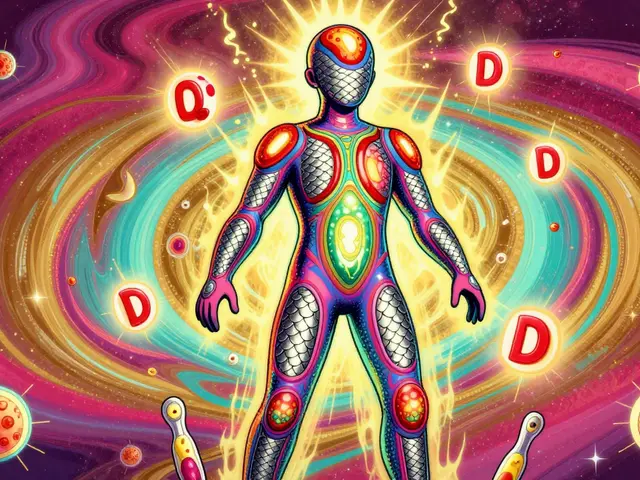

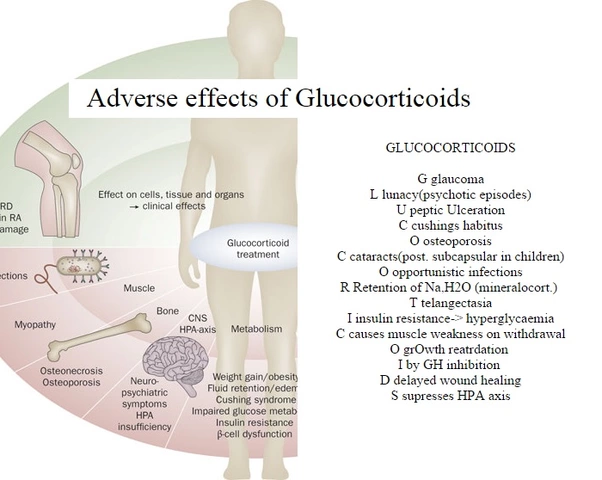
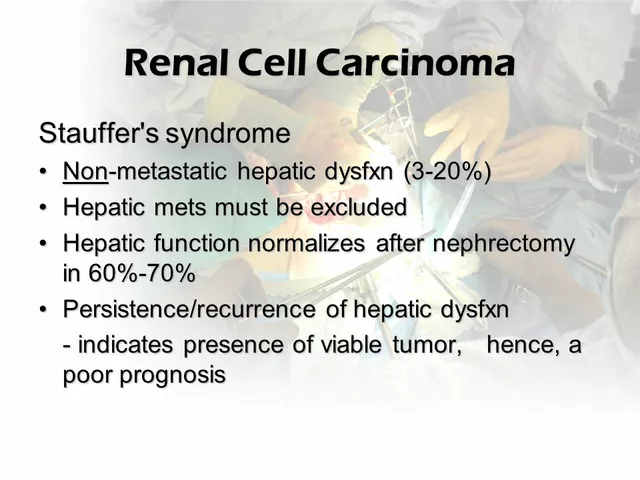
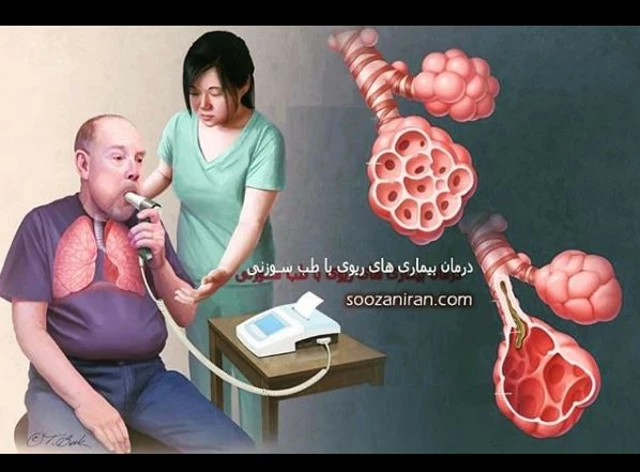
May 18, 2023 AT 10:15
Mitch Baumann
I mean, let's be real-support groups are basically the emotional equivalent of a luxury spa for cancer patients. 🌸✨ I've seen people cry over spilled milk, but this? This is *art*. The vulnerability, the shared trauma, the curated empathy-it's like a TED Talk with tissues. I keep a journal of my favorite quotes from these groups. One lady said, 'My tumor and I have a complicated relationship.' I cried. I still cry.
May 19, 2023 AT 18:20
Samuel Wood
i just dont get why people think talking about their feelings helps? like, i had rcc and i just took my meds and went to work. no groups. no tears. just results. also, 'renal cell carcinoma' is spelled wrong in the title. its 'cellular'. right? right??
May 21, 2023 AT 08:22
ridar aeen
You people are so naive. Support groups are a band-aid on a bullet wound. You think sharing stories changes your prognosis? Please. I've been in three. One guy cried for an hour about his cat dying. Meanwhile, his wife was filing for divorce. The only thing these groups do is create emotional dependency. And don't even get me started on the 'hope' nonsense. Hope doesn't shrink tumors.
May 21, 2023 AT 10:12
chantall meyer
I lived in Cape Town during my treatment. No support groups here. Just silence. And the heat. But you know what helped? A single nurse who remembered my name. That’s all. Not a group. Not a forum. Just one human being who saw me. The rest? Theater. 🌍
May 22, 2023 AT 22:45
Lorne Wellington
I’ve been a renal oncology nurse for 18 years, and I’ve seen firsthand how support groups transform lives. Not because they cure-but because they restore dignity. I’ve watched men who wouldn’t speak to their wives finally cry in a circle of strangers… and then hug them that night. That’s not magic. That’s humanity. 🌱 I also run a free peer-matching program-DM me if you’re isolated. No judgment. Just connection.
May 23, 2023 AT 10:26
Will RD
Support groups are for people who can't handle reality. Just take your pills. Shut up. Live. That's it. No drama. No emojis. No group hugs. You're not a character in a movie.
May 23, 2023 AT 12:04
Jacqueline Anwar
I find it profoundly concerning that this post romanticizes emotional dependency as a form of medical care. The clinical efficacy of peer support groups remains statistically insignificant in peer-reviewed oncology literature. Moreover, the use of emotive language such as 'hope' and 'resilience' is not only unscientific but potentially exploitative. One must ask: who benefits? The patients? Or the organizations profiting from their vulnerability?
May 24, 2023 AT 19:24
Ganesh Kamble
Lmao. So you’re telling me that people with cancer need to sit in a circle and hold hands to survive? Bro. I had a cousin with RCC. He drank whiskey, watched MMA, and died in 6 months. No support group. No tears. Just a fridge full of beer and a dog that licked his hand. Real life doesn’t have a soundtrack. Stop pretending.